Re-Engaging with Users
This article explains how to create and send Email Engagement to users who have not logged in within the last 30 days.
Overview
Email engagement allows you to send emails to your users. With an email engagement, you can facilitate re-engagement of the users who are not using the product for a long period of time. You can use email engagement for the users who opted out of in-app engagements.
Create Email Engagement
This section explains the procedure to create and send an email engagement.
To create an email engagement:
- Click the Engagements icon from the left pane.
- Click Create.
- Enter a name for the engagement.
- Select the Email engagement.
- Select a subscription, if you are using multiple subscriptions.
- (Optional) Enter a description.
- Click Create.
You can build an email engagement using the following steps:
Audience
This section explains how to set the audience for users who have not logged in within the past 30 days.
To set the audience:
- Navigate to the Audience section.
- Click Users.
- Select Last seen from the drop-down menu.
- Select the MORE THAN operator.
- Enter 30 in the text box.
This rule ensures that the Email engagement is triggered for only those users who have not logged in for the past 30 days.
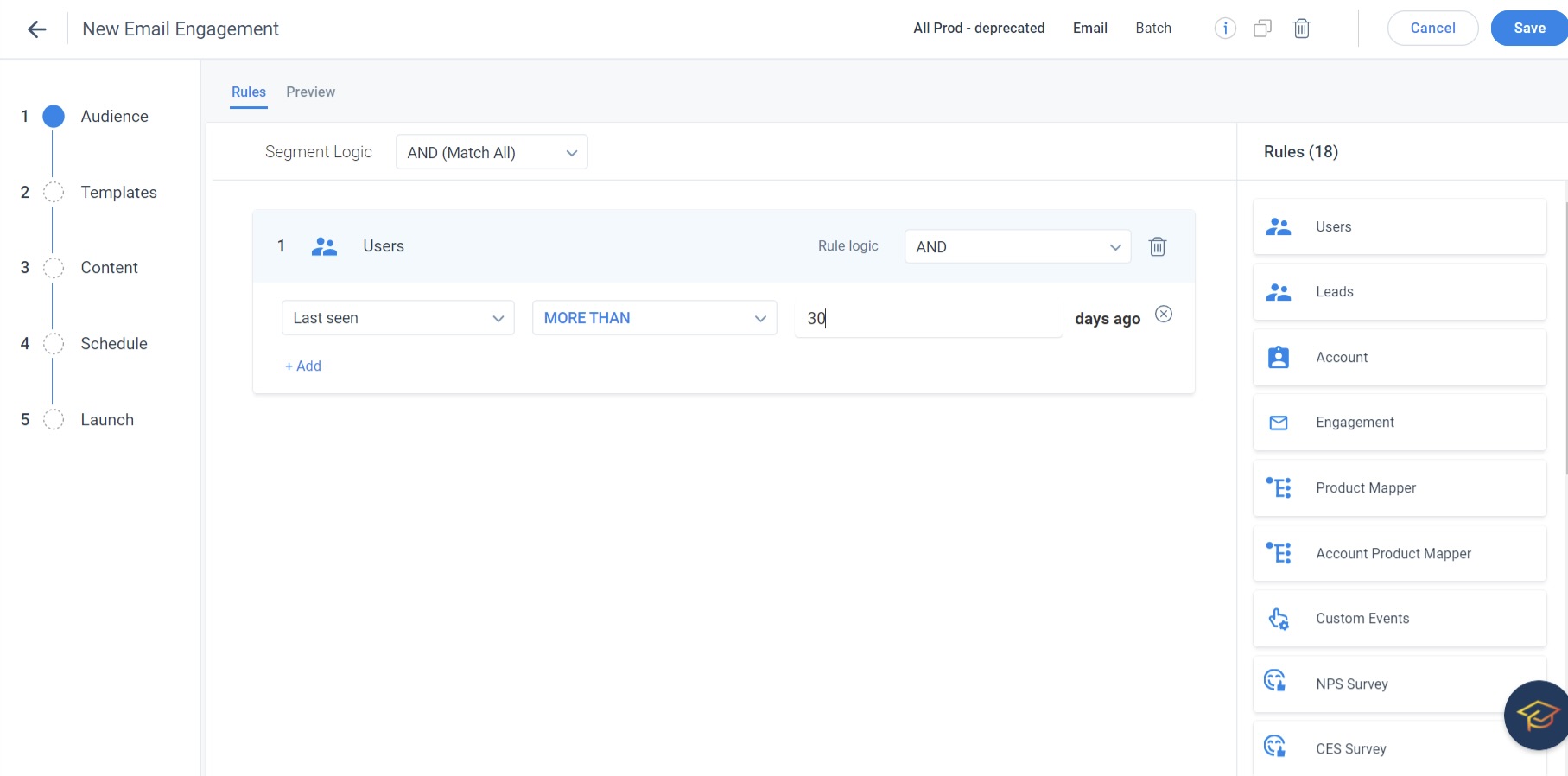
Templates
This section explains the process of selecting templates and creating content for your emails.
- Navigate to the Templates section.
- Select a template from the Saved Templates/Default Templates/Recently Used/Content History options.
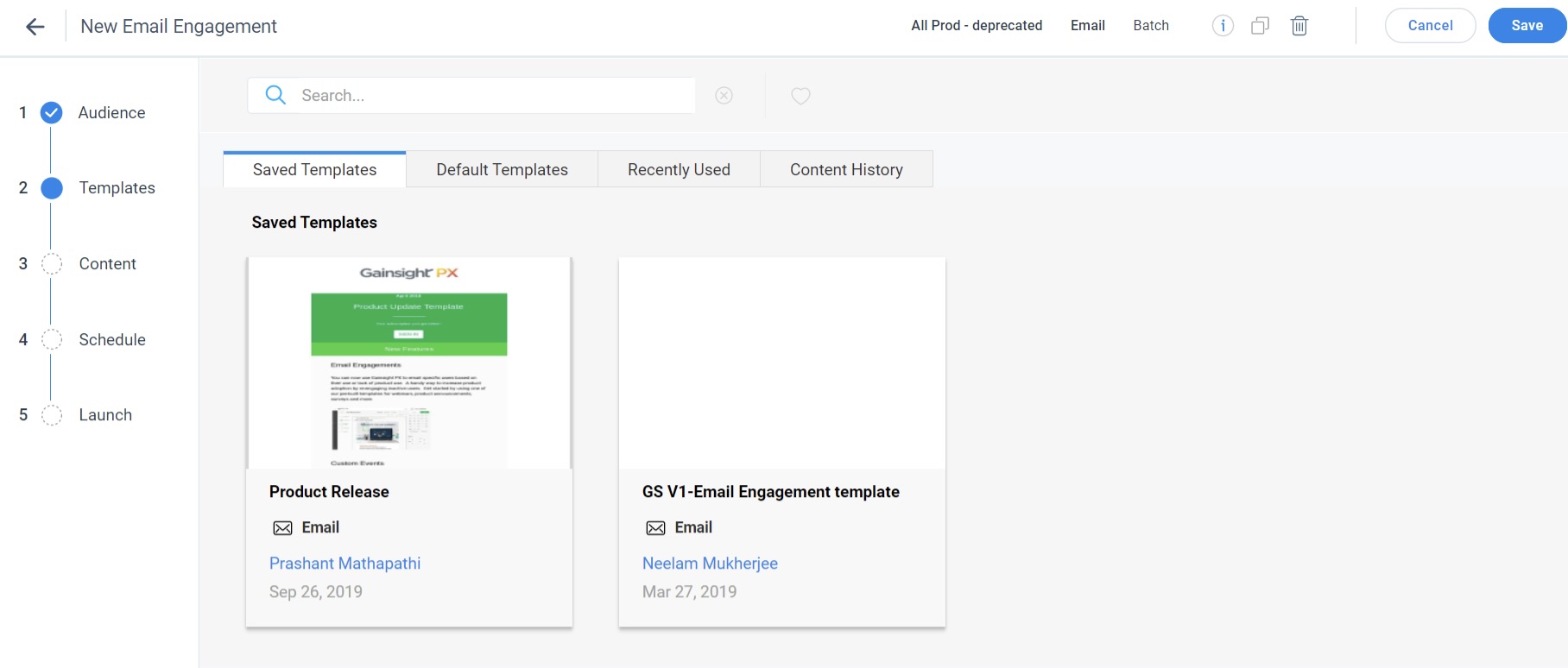
Content
In this section, you can edit or create content for your email engagement:
-
Edit the Email content as required using the available options.
Set the required color for the Email background.
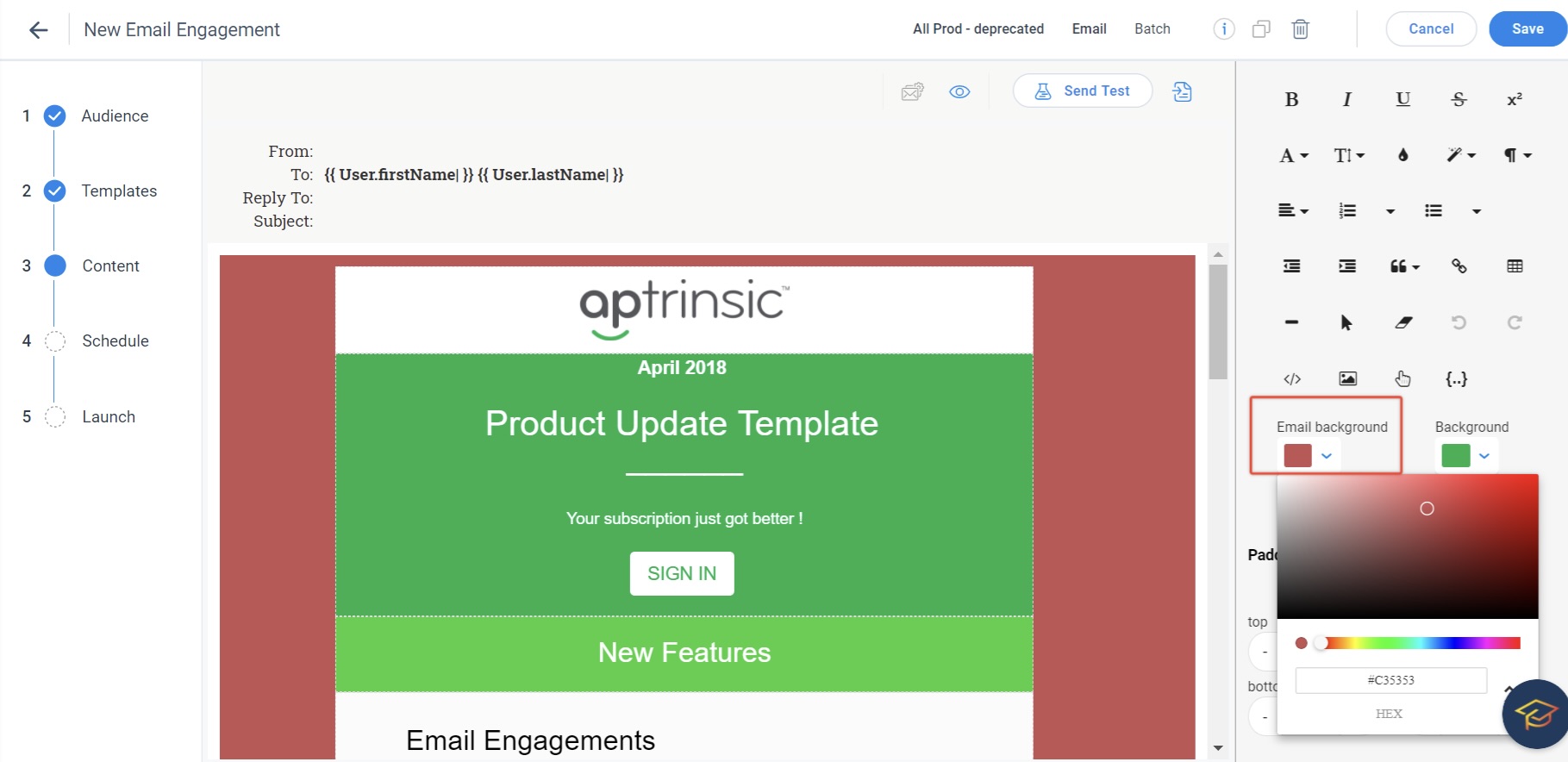
- Click the Email settings icon.
- In the From drop-down menu, select the sender’s user name and email ID. You can also select the sender from Senders tab. The Senders tab also allows you to create a new user, if the required user does not exist.
- Select a user from the Reply to drop-down menu. The selected user receives the email if the recipient replies.
- In the To drop-down menu, select a token to address the recipient.
- Enter a subject for the email.
- Click Apply.
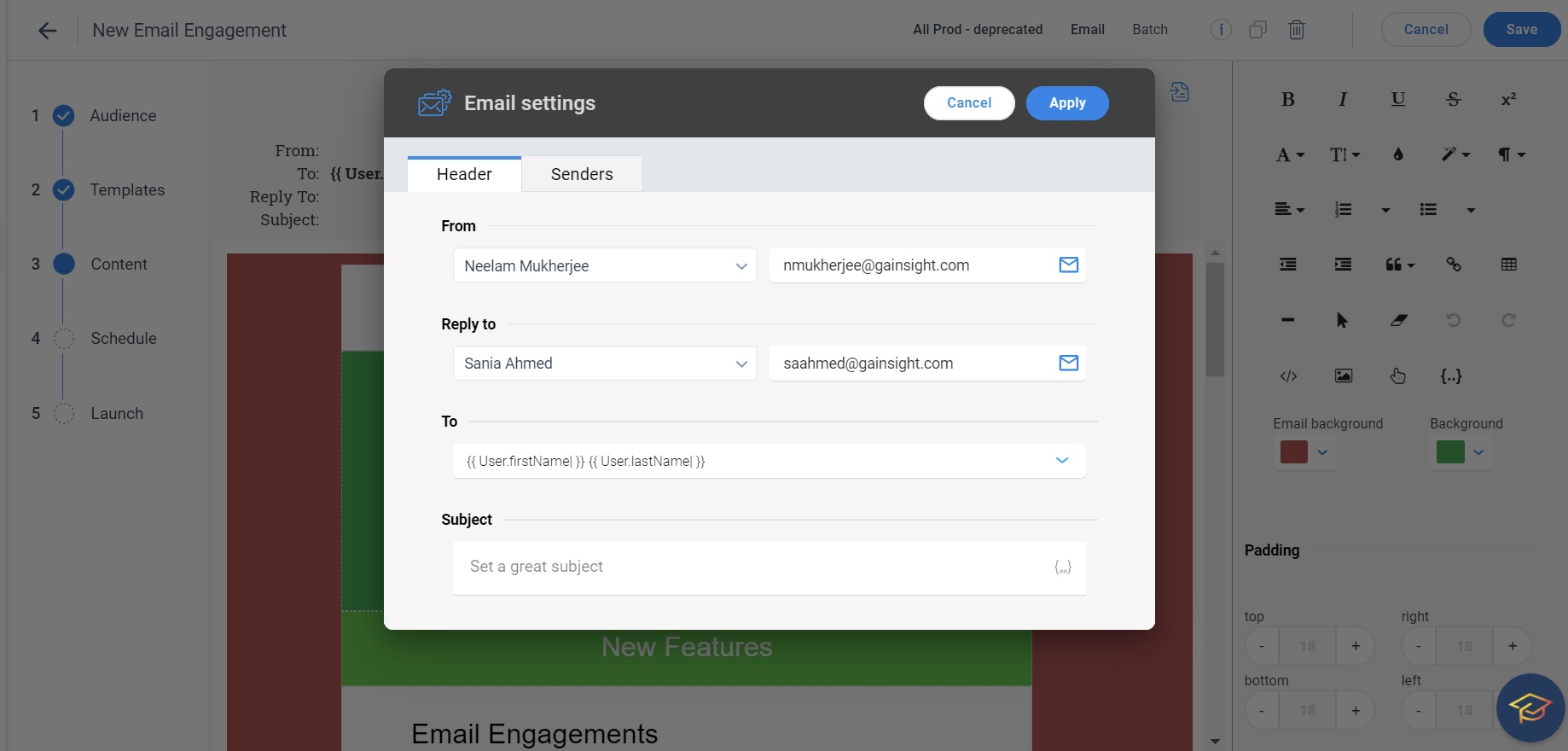
-
Click the preview icon to check how your email is displayed on a desktop and mobile.
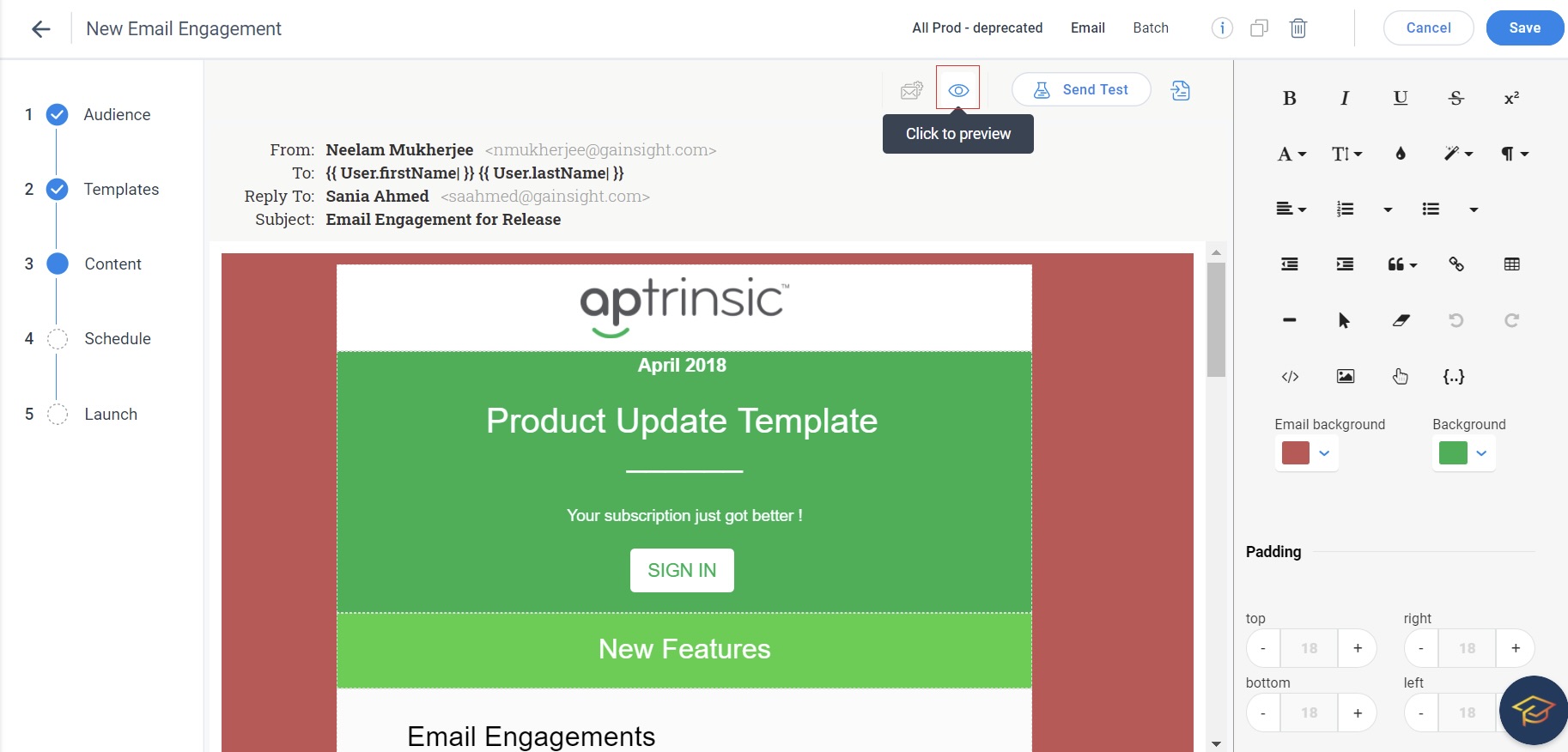
- (Optional) Click Send Test to send a test mail.
Note: Next step is applicable only if step 9 is executed. - Select the sender’s email ID, recipient’s email ID and click Send
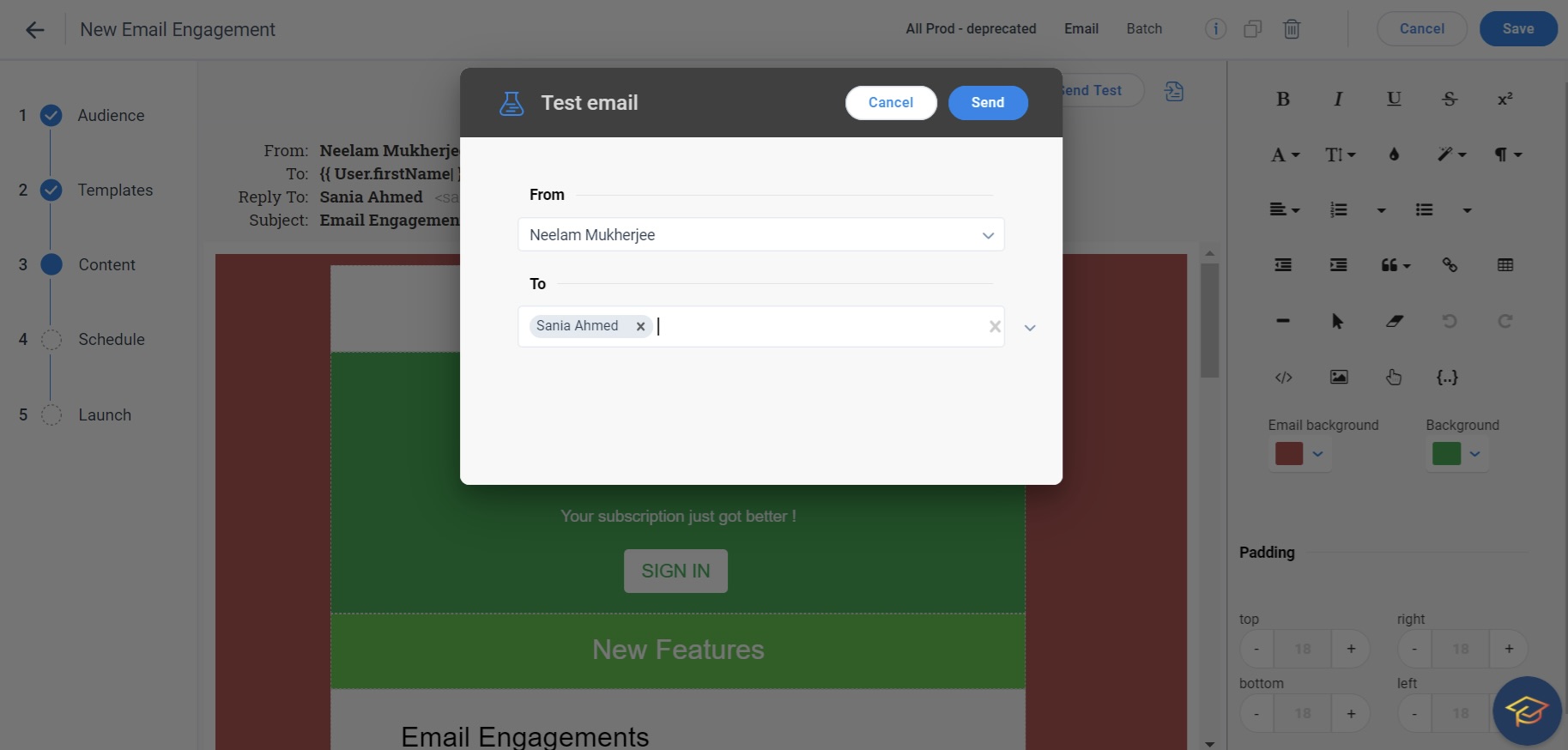
The recipient now receives a test mail.
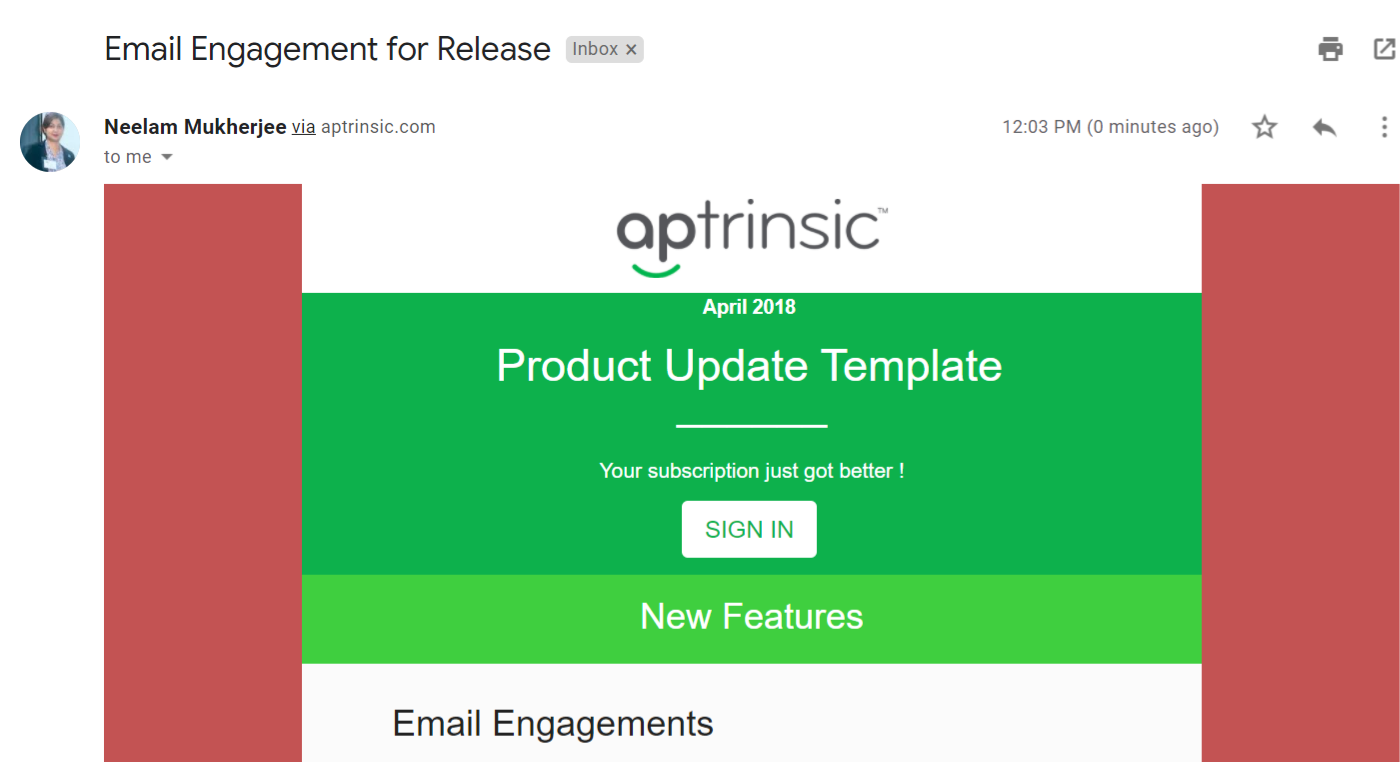
Schedule
While scheduling an Email engagement, you can only set a specific time and not a time range, as in the case of other engagements. The Email is triggered at the set time.
In the following image, the Email is triggered at 9pm on 2 Sep 2020, as per the Timezone setting.
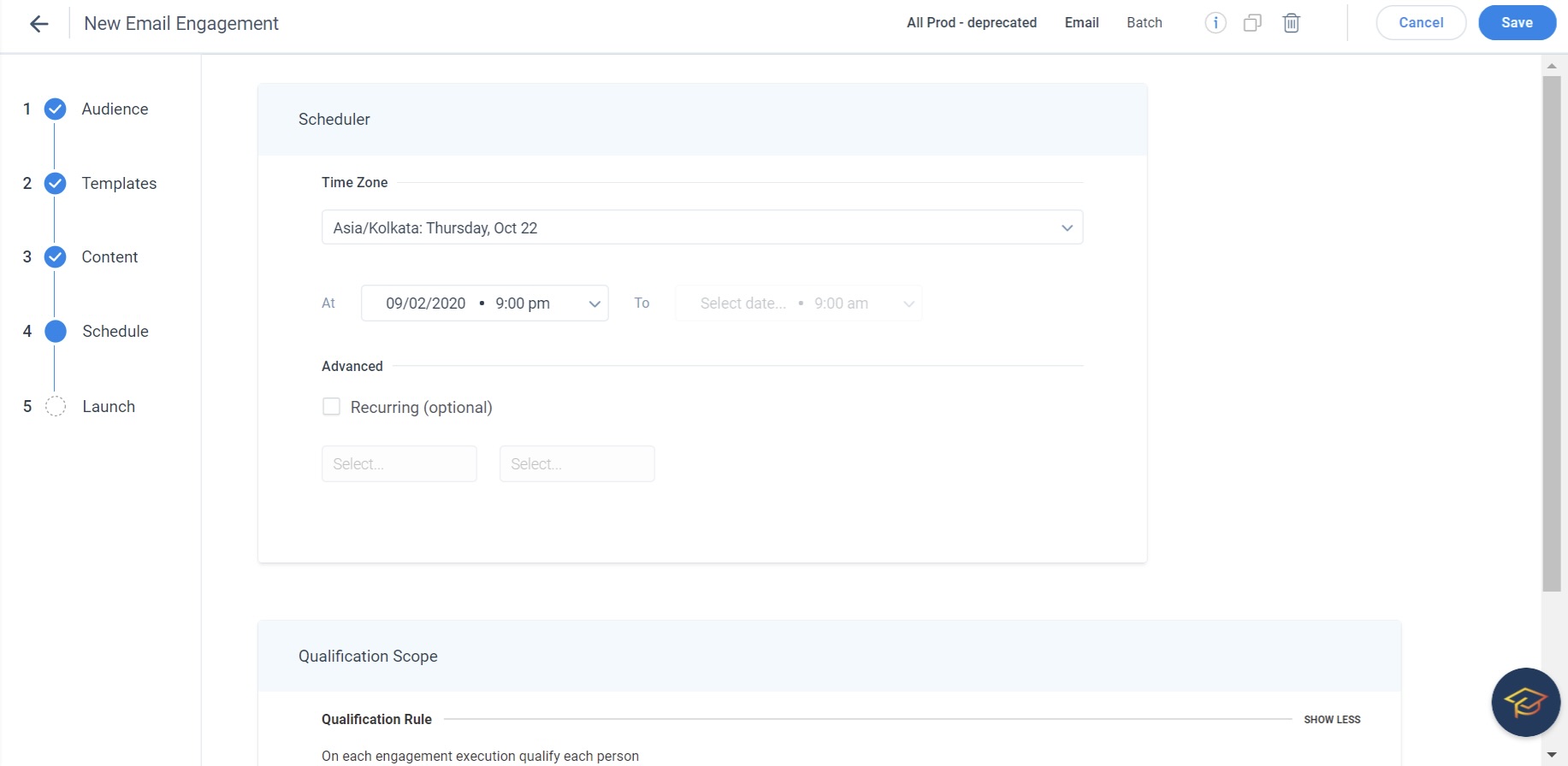
To set a time range, you must enable the Recurring schedule. In the following image, all qualifying users will receive the Email on Monday at 9 am, during the selected date range; 2 Sep to 22 Oct, 2020.
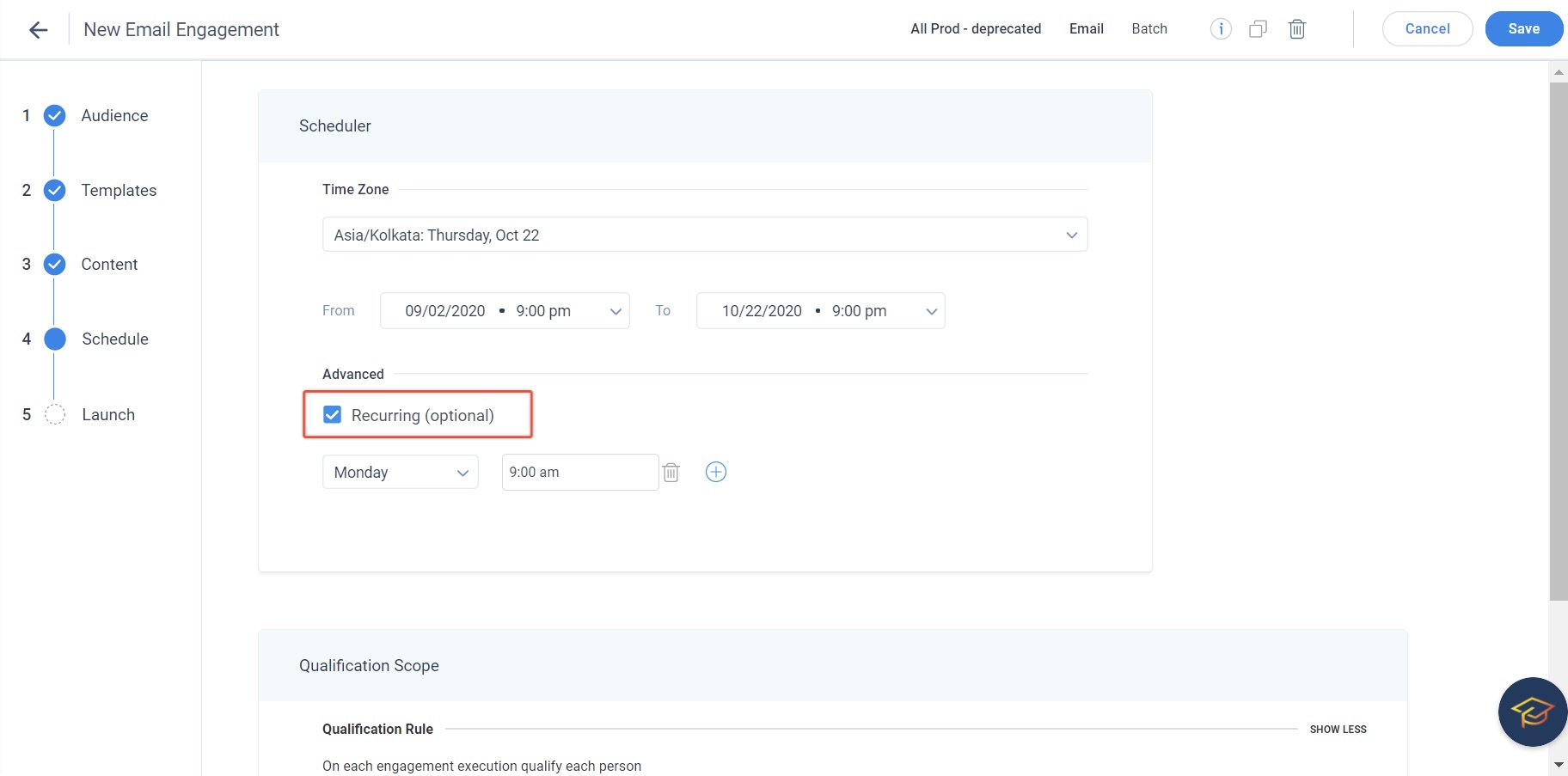
Qualification Scope: The Email Qualification scope has the following options:
- Only Once: The Email is sent to users only once, even though users match the criteria multiple times.
- Every Time: The qualifying users receive the Email every time the scheduler is reset.
- Once every: Each user is re-qualified to receive the email within a specific schedule. The frequency at which the user receives the mail depends on the frequency selected in this field.

Launch
The launching step gives you an overview of the settings and validates them automatically.